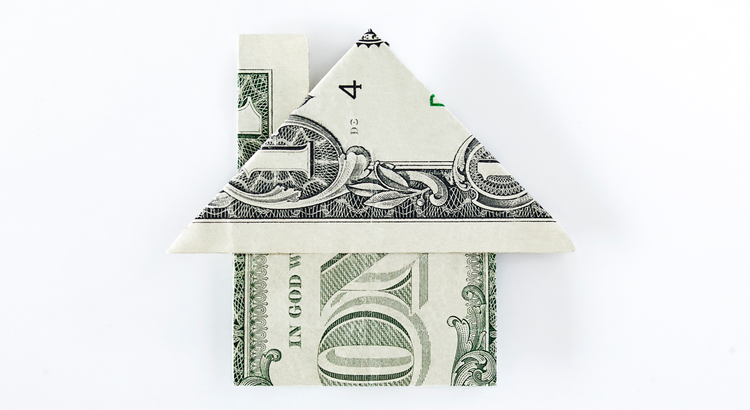Your home is more than just a place to live; it’s also a valuable financial asset. Over time, as you pay down your mortgage and your property value appreciates, you build equity. Home equity can be a powerful tool for achieving various financial goals, from home improvements to debt consolidation. Here’s how you can unlock the benefits of your home’s equity and make the most of this valuable resource.
What Is Home Equity?
Understanding Equity: Home equity is the difference between your home’s current market value and the outstanding balance on your mortgage. For example, if your home is worth $400,000 and you owe $200,000 on your mortgage, you have $200,000 in home equity.
Building Equity: You build equity in two ways: by making mortgage payments (which reduce the principal balance) and through home value appreciation. The longer you own your home and the more you pay down your mortgage, the more equity you accumulate.
Benefits of Home Equity
1. Home Improvement Loans
Enhance Your Property: One of the most common uses of home equity is for home improvements. Upgrading your home can not only enhance your living experience but also increase your property’s value, further boosting your equity.
Financing Options: You can use a home equity loan or a home equity line of credit (HELOC) to finance renovations. These loans typically offer lower interest rates compared to personal loans or credit cards, making them a cost-effective option for funding home projects.
2. Debt Consolidation
Simplify Payments: If you have multiple high-interest debts, such as credit card balances or personal loans, you can use your home equity to consolidate them into a single, lower-interest loan. This can simplify your payments and reduce your overall interest costs.
Save Money: By consolidating high-interest debt into a lower-interest home equity loan or HELOC, you can save money on interest payments and pay off your debt faster.
3. Education Expenses
Invest in Your Future: Home equity can be used to finance education expenses, whether it’s your own or your children’s. Investing in education can lead to better job opportunities and higher earning potential in the long run.
Lower-Cost Borrowing: Compared to private student loans, home equity loans often have lower interest rates, making them a more affordable way to fund education.
4. Emergency Fund
Financial Safety Net: Your home’s equity can serve as a financial safety net in case of emergencies. Having access to a HELOC allows you to borrow money as needed, providing flexibility and peace of mind.
Quick Access to Funds: Unlike traditional loans that require a lengthy approval process, a HELOC offers quick access to funds, making it ideal for unexpected expenses or emergencies.
5. Retirement Planning
Supplement Income: For retirees, home equity can be used to supplement income. Options like reverse mortgages allow homeowners aged 62 and older to convert a portion of their home equity into cash without having to sell their home or make monthly mortgage payments.
Financial Flexibility: Utilizing home equity can provide financial flexibility in retirement, allowing you to enjoy a comfortable lifestyle without depleting other retirement savings.
Ways to Access Your Home’s Equity
1. Home Equity Loan
What It Is: A home equity loan is a second mortgage that allows you to borrow a lump sum of money against your home’s equity. It typically has a fixed interest rate and a set repayment term.
Ideal For: Large, one-time expenses such as home renovations, debt consolidation, or major purchases.
2. Home Equity Line of Credit (HELOC)
What It Is: A HELOC is a revolving line of credit that you can draw from as needed, up to a certain limit. It usually has a variable interest rate.
Ideal For: Ongoing expenses or projects where you need flexibility in borrowing, such as home improvements or emergency funds.
3. Cash-Out Refinance
What It Is: A cash-out refinance involves refinancing your existing mortgage for a higher amount than you currently owe and taking the difference in cash. This option replaces your original mortgage with a new one.
Ideal For: Accessing a large amount of equity while potentially securing a lower mortgage rate.
4. Reverse Mortgage
What It Is: A reverse mortgage allows homeowners aged 62 and older to convert their home equity into cash. Unlike traditional loans, you don’t have to make monthly mortgage payments. The loan is repaid when you sell the home, move out permanently, or pass away.
Ideal For: Retirees looking to supplement their income without selling their home.
Things to Consider
1. Interest Rates and Fees
Understand Costs: While home equity loans and HELOCs often have lower interest rates than other types of loans, it’s essential to consider the fees and costs associated with them. These can include appraisal fees, closing costs, and annual fees for HELOCs.
2. Impact on Home Ownership
Borrow Responsibly: Using your home as collateral means that failing to repay the loan could result in foreclosure. Ensure that you borrow responsibly and have a clear plan for repayment.
3. Tax Implications
Tax Benefits: In some cases, the interest on home equity loans and HELOCs may be tax-deductible, especially if the funds are used for home improvements. Consult with a tax advisor to understand the specific implications for your situation.
In Conclusion
Unlocking the benefits of your home’s equity can provide significant financial advantages, from funding home improvements and consolidating debt to covering education expenses and planning for retirement. Understanding your options and the potential risks involved can help you make the best decisions for your financial future. Whether you choose a home equity loan, a HELOC, a cash-out refinance, or a reverse mortgage, leveraging your home equity wisely can enhance your financial stability and help you achieve your long-term goals.

Providing guidance and assisting motivated buyers, sellers, tenants, landlords, and investors in marketing and purchasing property for the right price under the best terms. Determining clients’ needs and financial ability to purchase the best home for them. Call me today and let me help you find a home that can change your life!
